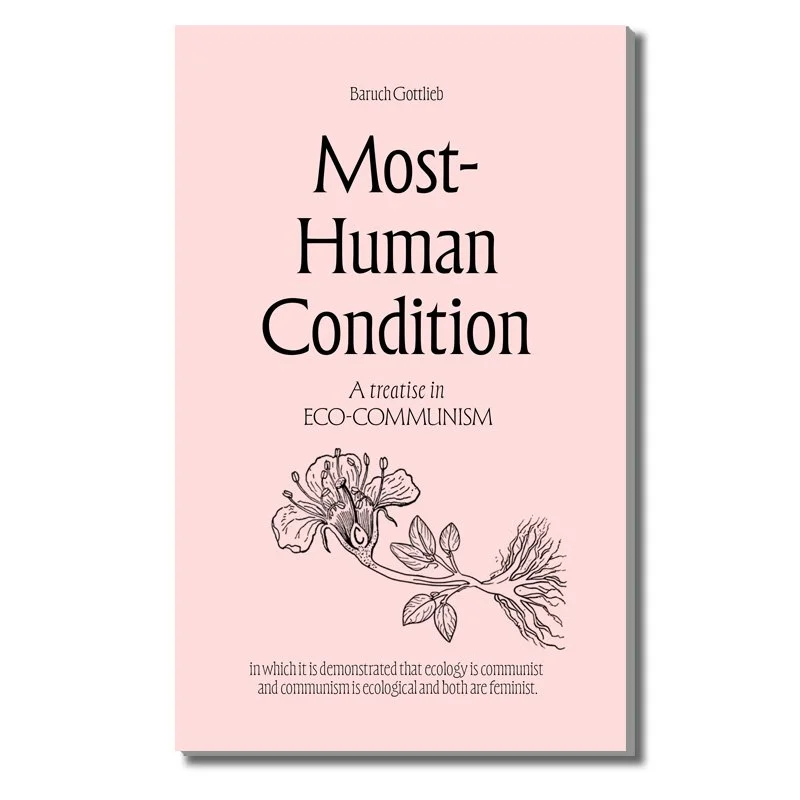most-human condition: a treatise in eco-communism in which it is demonstrated that ecology is communist and communism is ecological and both are feminist
Contributors
Description
Even if an “AI” were to find a solution to any of the prevailing problems of our time — ecological or economic crises, systemic injustice, or poverty — such a solution would never be implemented unless it generated profit. Under capitalism, where the profit-imperative determines policy and trumps reason, science cannot be emancipated to improve the lives of the vast majority of people and provide for their needs sustainably on this planet. As ecofeminists such as Mary Mellor and Arial Salleh noted in the 1990s, we cannot meaningfully address the systemic devastation of the biosphere without constraining the capitalist drive to profit at any price. But how are we to do this? And who gets to be “we?”
Over the past several decades, the figure of “human being” and the related ideas of humanity and humanism have deservedly come under more intense scrutiny. Emerging with colonialism, Enlightenment Humanism rationalised the inhuman: slavery, patriarchy, capitalism, and the technologised extraction from and subordination of women and nature. Yet, this book argues, we, human beings, do not really have any access to the world, to our necessarily shared conditions, and even to nature or the universe, except through other human beings.
Following Sylvia Wynter, human being is understood as a practice — a process that grapples with the limits of language and science, and their effects on other humans and the world. We need all the time in the world to develop this practice, which means we must liberate everyone’s time from the system that monopolises it for profit. Where many other contemporary authors leave off with unlikely or implausible proposals, Gottlieb remains implacably revolutionary and grounded in material conditions. In this original, radically democratic proposal for eco-communism, we can only succeed if we rise together. We will only rise together when the least powerful of us can also lead.
Gottlieb brings together a provocative array of references from eco-feminism to techno-philosophy, from historical materialism to contemporary art, to affirm the imperative of international intersectional struggle and solidarity which has persisted through the history of technological and scientific advance. Post-industrial society is really most-industrial society, post-modernity is really most-modernity, and “the post-human” condition is really a most human condition.
Back cover blurb
Over the past few decades, the call to undermine, subvert, and contradict all solid notions, such as those of universality or equality, have shaken the foundations of political utopia, and troubled practices of building systemic, multilayered, progressive thought. With a compelling re-assessment of the vexed figure of human being, Baruch Gottlieb's Most-Human Condition rescues us from stagnation in the realm of the volatile, precarious, and contingent. As a treatise, it guides us through the marvels of the politically possible and the horrors of ethically unacceptable, consequently maintaining an anti-imperialist understanding of how eco-communism always already is a feminist thinking and action. In this intersectional, dialectical analysis, and manifesto, unexpected encounters, such as those of Lenin and Sylvia Wynter or Moten and Flusser take place, reminding us of the necessity to contend with the contradictions, not just to imagine their future sublation. In this way Gottlieb's Treatise is an excellent book to help re-interpret the present and the past as we act into shared futures.
~ Ewa Majewska, feminist philosopher, author of Feminist Antifascism
